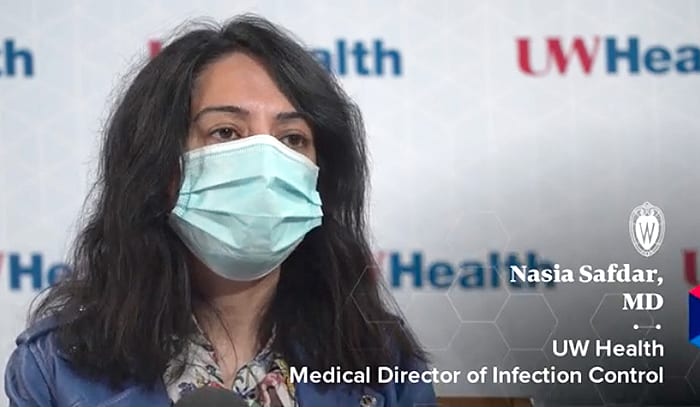28 Jul Can oral and nasal antiseptic prevent COVID-19?
 A new prevention research study at the University of Wisconsin School of Medicine and Public Health looking at whether commonly used oral and nasal antiseptic (in addition to personal protective equipment and hand hygiene) can help prevent COVID-19 infections in frontline healthcare workers.
A new prevention research study at the University of Wisconsin School of Medicine and Public Health looking at whether commonly used oral and nasal antiseptic (in addition to personal protective equipment and hand hygiene) can help prevent COVID-19 infections in frontline healthcare workers.
Povidone iodine and chlorhexidine gluconate are antiseptic agents commonly used in healthcare settings to kill microorganisms that can cause infections. For example, povidone iodine and chlorhexidine gluconate are often applied to the skin, nose, or mouth before and after surgery to prevent infections. These compounds have been proven safe in cleaning the skin, nose and mouth.
The study, Role of Naso-oropharyngeal Antiseptic Decolonization to Reduce COVID-19 Viral Shedding and Disease Transmission (SHIELD study), is funded by the Wisconsin Partnership Program and led by Nasia Safdar, MD, PhD, medical director of infection control at UW Health, and Daniel Shirley, MD, medical director of infection control at UnityPoint Health-Meriter. Both are physicians in infectious diseases at the University of Wisconsin School of Medicine and Public Health.
In lab settings, these antiseptics have proven effective in killing coronaviruses, including the virus that causes COVID-19 (SARS-CoV2). In this study, healthcare workers would apply povidone iodine to their nose and chlorhexidine gluconate to their mouth. The study team will measure if healthcare workers experience fewer COVID-19 diagnoses while using the povidone iodine and chlorhexidine gluconate. If the study finds that use of povidone iodine and chlorhexidine gluconate is associated with SARS-CoV-2 infection among the healthcare workforce, this research could lead to improved preventive measures against the virus.
The study is now enrolling frontline healthcare workers around Wisconsin. To be eligible, participants must be:
- frontline healthcare personnel, (for example: nurses, doctors, respiratory therapists, nursing assistants, nurse practitioners, and pharmacists) involved in or anticipated to be involved in the care of suspected or confirmed COVID-19 patients
- willing and able to perform the interventions and data collection
Full article and information on participation



